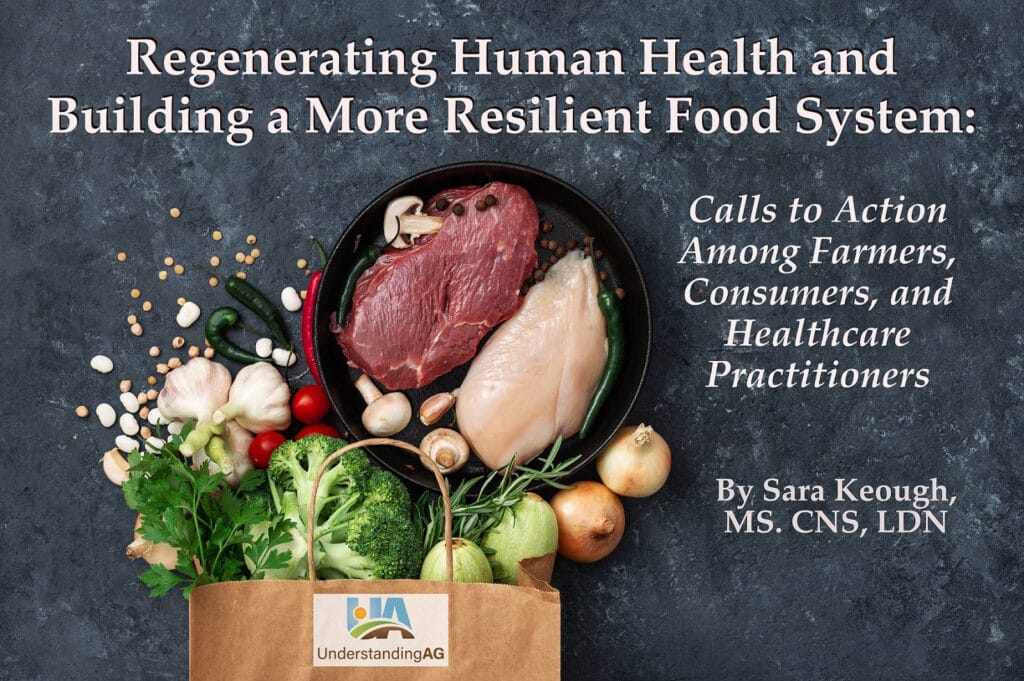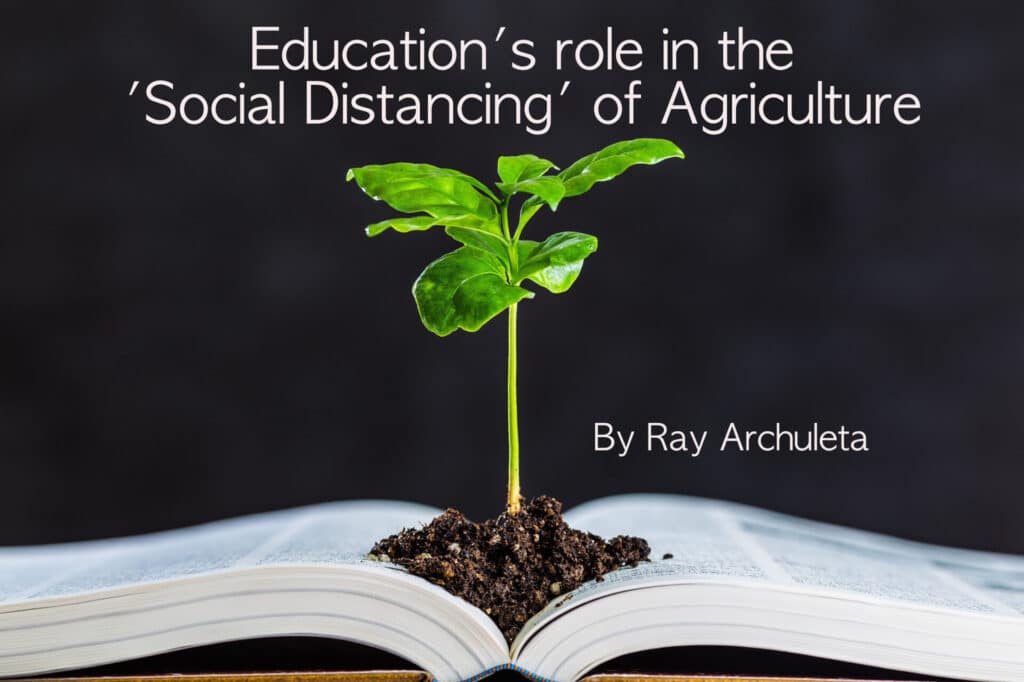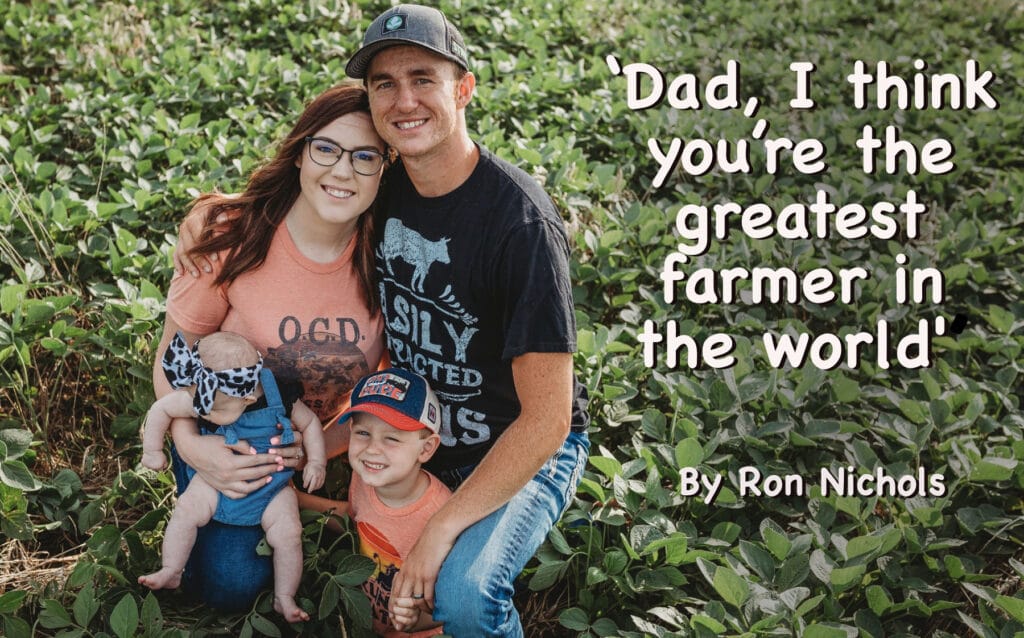- All
- & Specialty Crops
- 6-3-4 Regeneration
- Adaptive Grazing & Livestock
- Crops & Small Grains
- Farm Economics & Finance
- Food & Nutrition
- Gardening
- Orchards
- Orchards, Vineyards, Gardening, & Specialty Crops
- Regenerative Success Stories
- Soil Health & Resource Management
- Vineyards

Where Human Health Begins: One Farmer’s Story of Regeneration
By Ron Nichols Sometimes, adversity is a blessing, though rarely does it seem so in the moment. Just ask Roy Thompson, a 33-year-old farmer from Akaska, South Dakota. At age 20, Roy was diagnosed with Crohn’s disease, an inflammatory bowel condition that the Mayo Clinic’s website describes as “both painful and debilitating, and sometimes may […]

Don’t Let it Bug You Six Steps to Control Internal & External Parasites
Allen R Williams, Ph.D. Parasite control in livestock is a major issue and has been heavily focused on for several decades now. There are numerous anthelmintics (chemical dewormers) available for internal parasite control and a host of pyrethroid and organophosphate products available for fly control. The issue with any of these products is that they […]

A Tale of Two Industries
Allen R Williams, Ph.D. The 1859 novel written by Charles Dickens, A Tale of Two Cities, was required reading for millions of school kids in English Literature classes and is one of the best-selling novels of all time. The story is set in the late 18th century against the background of the French Revolution. Just […]

Can Food Be Our Medicine
Allen R Williams, Ph.D., Understanding Ag, LLC Did you know that the health of plants, animals, ecosystems and humans is inextricably tied to plant phytochemical diversity? So, what are phytochemicals? In short, they are compounds naturally produced by plants that help the plants thrive in challenging conditions, fight off competitors, pest insects and disease. When […]

The Most Radical Act You Can Do: Grow Your Own Food!
Ray Archuleta, Understanding Ag, LLC Concerns about the US food chain supply made their way into the mainstream this week, as more meat processing and packaging plants suspend operations temporarily due to coronavirus outbreaks in the workforce. When Smithfield Foods announced it was shutting its Sioux Falls plant indefinitely, CEO Ken Sullivan warned that doing […]

Dr. Allen’s 10 Tips for Summer Grazing Success
Allen R Williams, Ph.D., Understanding Ag LLC By the time you read this we will be fully into summer 2020. In many parts of the country it has been much cooler than normal well into the month of May. Even here in Mississippi we have had a very pleasant spring. Nighttime temperatures in the 40s […]

It’s Time for a Change
by Shane New and Gabe Brown Empty shelves and meat cases in grocery stores, oil at negative prices, record unemployment, skyrocketing national debt, the COVID-19 pandemic has affected many aspects of our lives. This crisis has exposed the weaknesses and vulnerabilities of our current system, prompting the need and opportunity for a change. Change has […]

Nurturing a Healthy Relationship with Our Food
By Ray Archuleta, Understanding Ag, LLC Food is relationship In my previous blog, I examined several institutional, philosophical and educational issues that have created unintended social distancing in agriculture. In this article, I want to shift the focus to examine another type of “social distancing.” This one involves the “relationship” we have with our food. […]

Regenerating Human Health & Building a More Resilient Food System: Calls to Action Among Farmers, Consumers, and Healthcare Practitioners
By Sara Keough MS, CNS, LDN – Eco-Nutritionist “People are fed by the food industry, which pays no attention to health, and are treated by the health industry which pays no attention to food.”-Wendell Berry It may have been this quote from one of my heroes, farmer and activist Wendell Berry, that inspired me years ago […]

Education and the “Social Distancing” of Agriculture
Ray Archuleta, Understanding Ag, LLC Recently, I went to a local sandwich shop, hoping for a sit-down lunch. But instead I walked into a nearly empty restaurant. This empty area made me feel uneasy, like I had walked into a futuristic sci-fi movie displaying the de-population of humans by some strange pestilence. A sense of […]

Time for a Garden
By Gabe Brown, Understanding Ag, LLC It’s the time of the year when many of us are thinking about growing a garden. With the ongoing pandemic highlighting the importance of having a healthy immune system, it is more important than ever that we do what we can to ensure that we are growing and consuming […]

